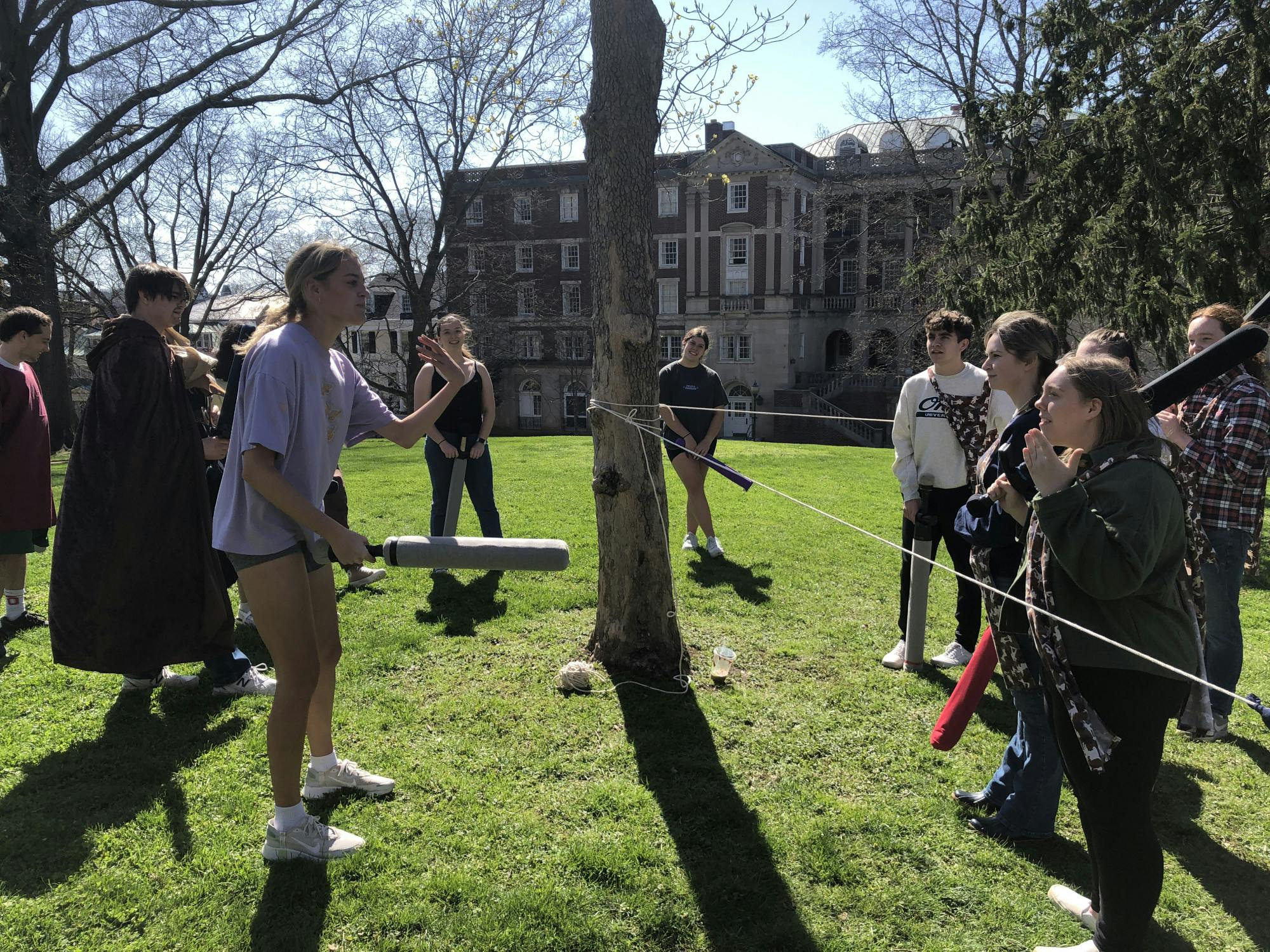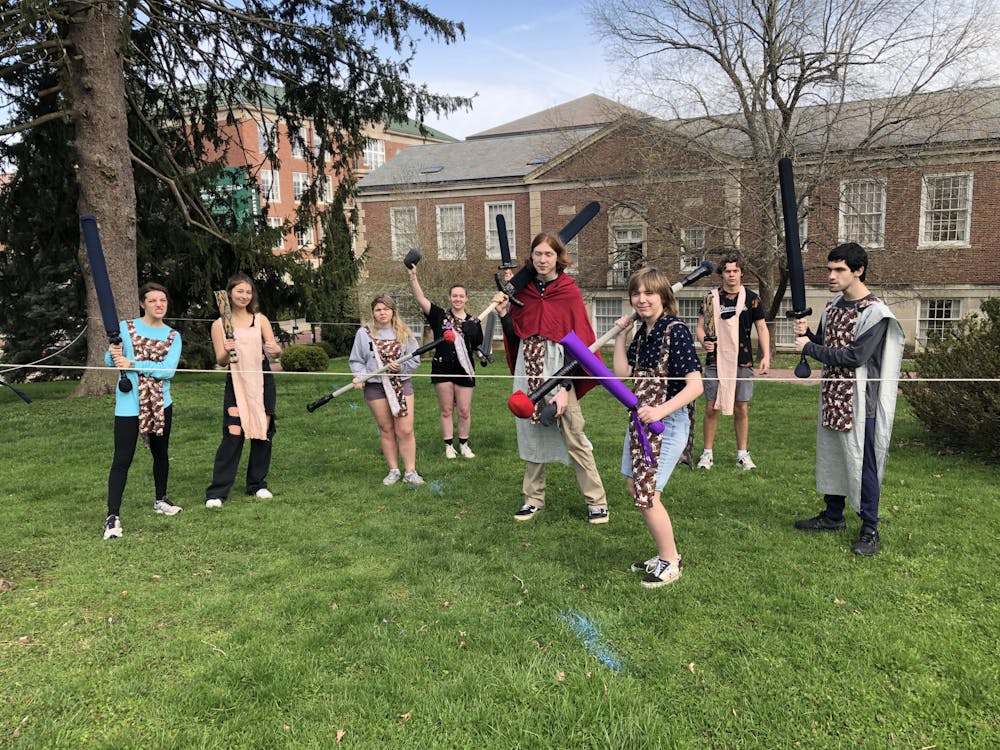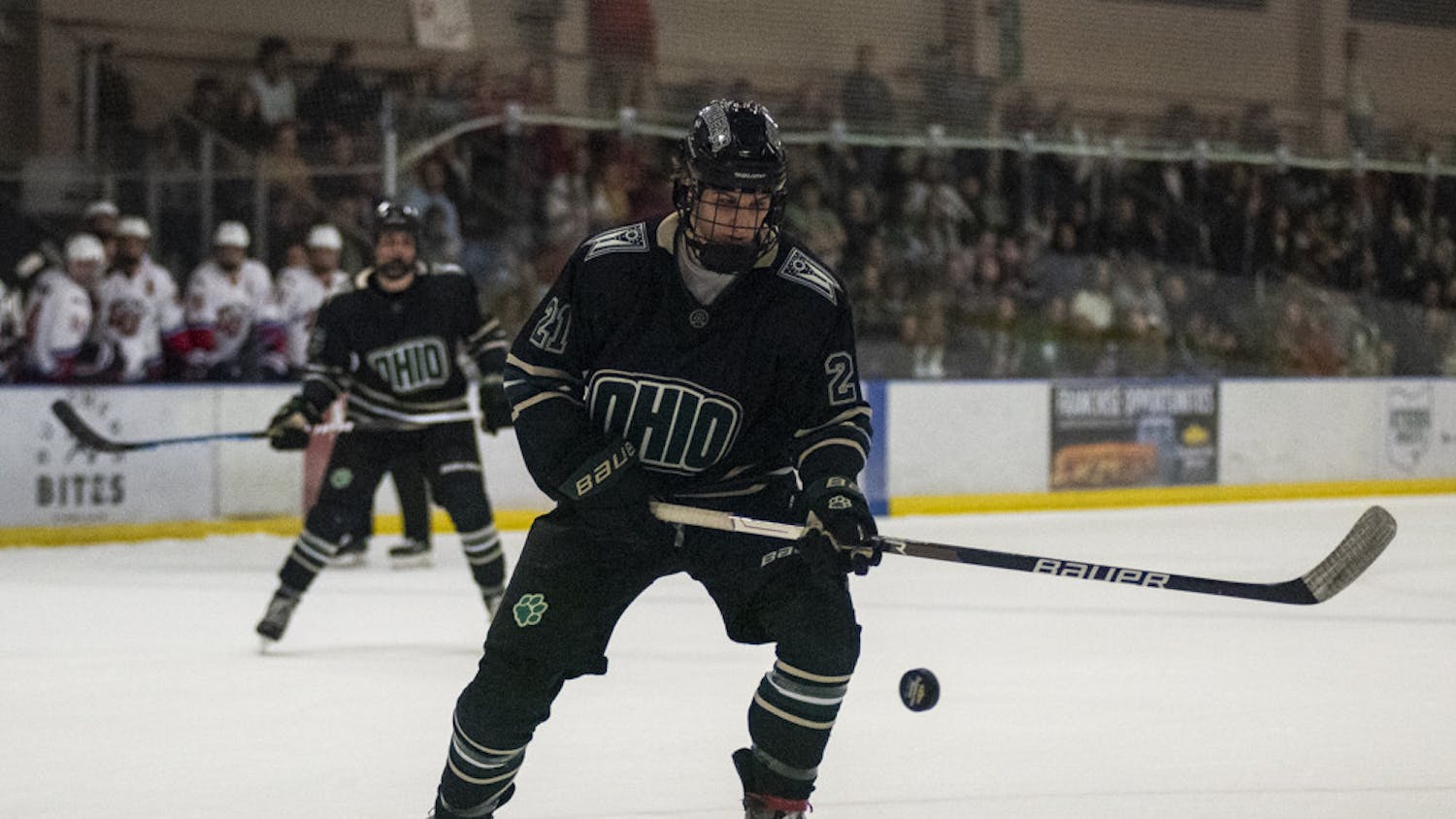While sunny and pleasant outside, a battle cry is heard from the green area behind Scripps Hall. Some in costumes, some not, students of HC 4500, or the Cutler Scholars Colloquium, fight each other with foam swords and other medieval weaponry.
What may appear to onlookers as a meeting of a fantasy club, the battle that is ensuing is part of a class, not an extracurricular activity.
Although it may appear as silly by essentially playing make-believe, the students take it seriously. The slain accept their defeat and collapse on the wet grass while the victorious celebrate their win. There is some giggling and screams of excitement, but it’s clear each side wants to win.
Edmond Y. Chang, an assistant professor of English, oversees the combat — engaging in the fantasy by donning an ornate robe and billowy pants. Chang encourages negotiation and strategizing among the participants as well as laughs and the dramatic demise of some of his students. At one point, he even joins in on the final battle.
Although the players seem to be enjoying themselves, this exercise is not just for enjoyment. It’s a style of teaching.
According to Urban Dictionary, live action role play, or LARP, is a type of game in which participants wear costumes that depict a fictitious character and work together to create an agreed on fantasy world. Chang, having had experience with LARPing in the past, is known for incorporating this into his classes.
Jacob Walther, a freshman studying journalism as well as a student of Chang’s HC 4500 class, had reservations at first when it came to role playing in public but eventually overcame them to enjoy the experience. Instead of on a stage or in a classroom, Chang’s LARPing takes place in the middle of College Green.
“It’s been really cool,” Walther said. “We’ve learned about the difference between dressing up and what it means being in costume and learning about clothing and gender roles.”
Some students, like Sarah Cooper, a freshman studying business who uses they/them pronouns, used their past experience from other activities to aid in their comfortability of LARPing as well as their skills in the experience.
“I played D&D (Dungeons and Dragons) in the past, and I have some experience in that mythical aspect, and I also do a lot of theater,” Cooper said. “It’s (LARPing) weirdly putting them both together.”

Although it is role play, Chang’s students create their characters and are encouraged to embody who they depict. Chang has found this element of LARPing to be beneficial when addressing more serious topics.
“I think that, in this way, getting to inhabit the character or the character gives you a different perspective,” Chang said. “I often teach literature through the lenses of race, gender, sexuality, class, ability and what does that look like in action?”
Chang went on to say that LARPing gives the participant a chance to wear the shoes of another from a certain background. If that character is an orc, there are still common themes and struggles throughout the living experience.
Chang is also interested in the play experience he gives to his students.
“I’m really interested in the ways that games can help us change our perspectives,” Chang said. “You know, what does it mean to play on a campus, how does that change our relationship to spaces, buildings, classrooms, other people on campus? I’m so interested in those things as well.”
Furthermore, LARPing is a form of experiential learning — a concept encouraged by OU.
“I think experiential learning is a big buzzword, right?” Chang said. “So in this case, playing fantasy LARP lets us sort of put into action. Some of the questions that have been raised, we’ve been raising all term.”
Reflective in his involvement with the final battle, Chang believes LARPing helps to facilitate relationships with his students.
“First of all, because I sometimes get into the mix, (LARPing) helps break down the kind of hierarchy of the professor and then students. The way that professor’s actually playing alongside you, too, is a very different thing,” Chang said. “It's a different perspective. It's a different way to look at the same problem, right? So, we're reading stuff, we're talking about stuff and, now, we're doing stuff.”






